Morning Star, morning star, or Morningstar may refer to:

Prester John was a legendary Christian patriarch, presbyter, and king. Stories popular in Europe in the 12th to the 17th centuries told of a Church of the East patriarch and king who was said to rule over a Christian nation lost amid the pagans and Muslims in the Orient. The accounts were often embellished with various tropes of medieval popular fantasy, depicting Prester John as a descendant of the Three Magi, ruling a kingdom full of riches, marvels, and strange creatures.

The Wandering Jew is a mythical immortal man whose legend began to spread in Europe in the 13th century. In the original legend, a Jew who taunted Jesus on the way to the Crucifixion was then cursed to walk the Earth until the Second Coming. The exact nature of the wanderer's indiscretion varies in different versions of the tale, as do aspects of his character; sometimes he is said to be a shoemaker or other tradesman, while sometimes he is the doorman at the estate of Pontius Pilate.
JohnHenry most commonly refers to:

The Fisher King is a figure in Arthurian legend, the last in a long line of British kings tasked with guarding the Holy Grail. The Fisher King is both the protector and physical embodiment of his lands, but a wound renders him impotent and his kingdom barren. Unable to walk or ride a horse, he is sometimes depicted as spending his time fishing while he awaits a "chosen one" who can heal him. Versions of the story vary widely, but the Fisher King is typically depicted as being wounded in the groin, legs, or thigh. The healing of these wounds always depends upon the completion of a hero-knight's task.
A legend is a historical narrative, a symbolic representation of folk belief.
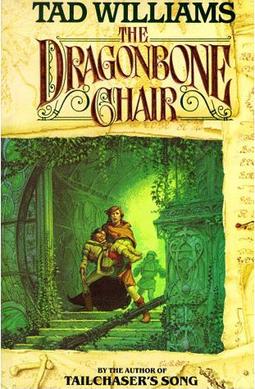
Memory, Sorrow, and Thorn is a trilogy of epic fantasy novels by American writer Tad Williams, comprising The Dragonbone Chair (1988), Stone of Farewell (1990), and To Green Angel Tower (1993).
Malcolm, Malcom, Máel Coluim, or Maol Choluim may refer to:
Cain is the first son of Adam and Eve in the Bible.
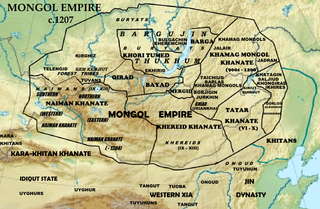
The Keraites were one of the five dominant Mongol or Turkic tribal confederations (khanates) in the Altai-Sayan region during the 12th century. They had converted to the Church of the East (Nestorianism) in the early 11th century and are one of the possible sources of the European Prester John legend.
Hugh was the bishop of Jabala, or, as it was then called, Gibellum, a town in Syria, during the 12th century. When the County of Edessa fell to Zengi in 1144, Raymond of Antioch sent Hugh to report the news to Pope Eugene III. In response, Eugene issued the papal bull Quantum praedecessores the following year calling for the Second Crusade. Hugh also told the historian Otto of Freising about Prester John, the mythical Nestorian Christian priest-king of India, who was intending to help the Crusader States against the Saracens. Otto included the story in his Chronicon of 1145; it is the first recorded mention of the Prester John legend.
King Arthur is a legendary king of the Britons.
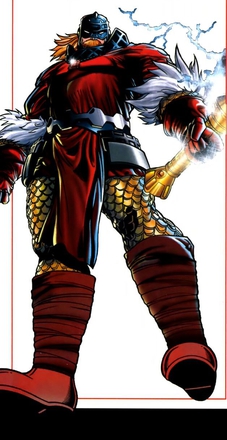
Prester John is a fictional character appearing in American comic books published by Marvel Comics. The character is based loosely on the legendary Christian king Prester John.
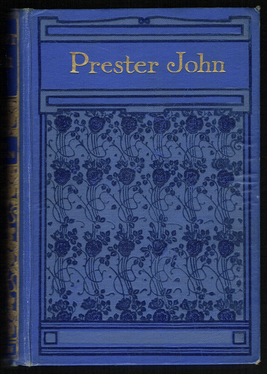
Prester John is a 1910 adventure novel by the Scottish author John Buchan. It tells the story of the young Scotsman David Crawfurd and his adventures in South Africa, where a native uprising under the charismatic black minister John Laputa is tied to the medieval legend of Prester John.

In modern times the Mongols are primarily Tibetan Buddhists, but in previous eras, especially during the time of the Mongol empire, they were primarily shamanist, and had a substantial minority of Christians, many of whom were in positions of considerable power. Overall, Mongols were highly tolerant of most religions, and typically sponsored several at the same time. Many Mongols had been proselytized by the Church of the East since about the seventh century, and some tribes' primary religion was Christian. In the time of Genghis Khan, his sons took Christian wives of the Keraites, and under the rule of Genghis Khan's grandson, Möngke Khan, the primary religious influence was Christian.
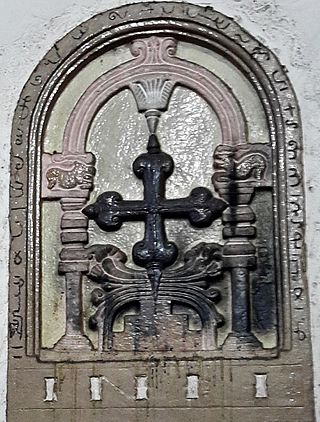
The history of the Church of the East in India is dated to 52 AD by apocryphal sources and to the 9th century by the Quilon Syrian copper plates, the latter of which is considered the earliest reputable dating for Christians in the Indian subcontinent.

The Legend of Korra: Turf Wars is a three-part graphic novel series written by Michael Dante DiMartino, with art by Irene Koh. It serves as a canonical continuation of the animated television series The Legend of Korra, created by DiMartino and Bryan Konietzko. The graphic novel trilogy is set after the show's final season, with Avatar Korra dealing with the aftermath of Kuvira's attack on Republic City, while also exploring her new relationship with Asami Sato.
This page is based on this
Wikipedia article Text is available under the
CC BY-SA 4.0 license; additional terms may apply.
Images, videos and audio are available under their respective licenses.









